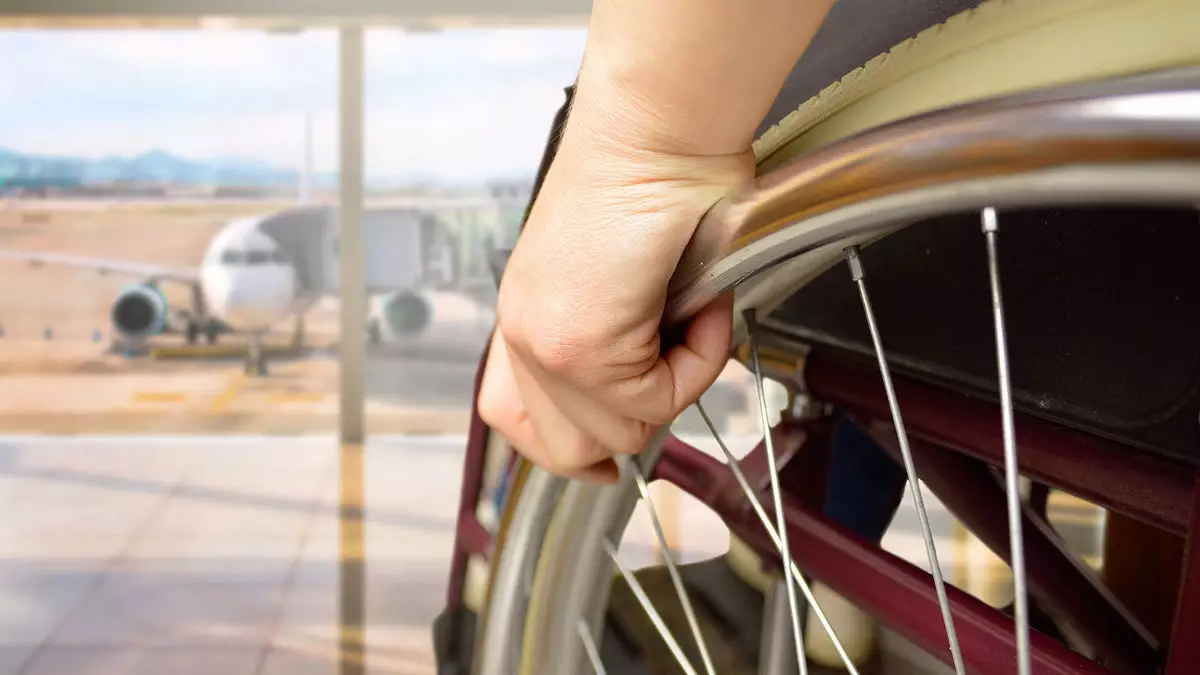Advocacy groups for the disabled community are celebrating the recent passing of the FAA funding reauthorization bill, which promises to make flying a safer and more comfortable experience for travelers with disabilities. Angel Hardy Heinz, public policy manager for the Christopher & Dana Reeve Foundation, expressed her excitement over the bill, highlighting the collaborative efforts that went into making it a reality. Among other measures, the bill addresses various accessibility issues, including training requirements for workers who handle wheelchair stowage and assistance for flyers who use wheelchairs for boarding.
One of the key provisions of the bill is the requirement for the FAA to consider passengers with disabilities in tests establishing aircraft evacuation procedures. This is a crucial step in ensuring that all passengers, including those with disabilities, can safely evacuate an aircraft in case of an emergency. The bill sets the framework for regulators to potentially require airlines to provide at least two seats in the economy cabin accommodating flyers using their own wheelchairs, a significant advancement in air travel accessibility.
Another important aspect of the bill is the mandate for passenger portals, such as airport kiosks and airline websites, to be accessible to flyers with varying types of disabilities, such as vision impairment. This will greatly improve the overall travel experience for passengers with disabilities, ensuring they have equal access to information and services. Additionally, the bill instructs the DOT to develop regulations within three years that would require airlines to provide appropriate seating for any flyer with a disability, potentially allowing them to sit next to a companion or access choice seating areas like bulkhead rows.
Advocates like John Morris of WheelchairTravel.org applaud the training requirements outlined in the bill, which aim to better equip workers handling wheelchair-related duties. By setting standards for training and recertification every 18 months, the bill seeks to reduce incidents of mishandling and damage to wheelchairs during air travel. Morris emphasizes the importance of these training requirements in ensuring the safety and well-being of passengers with disabilities, as improper handling can lead to accidents and discomfort during travel.
A notable provision in the bill is the requirement for the DOT to respond to accessibility-related complaints within four months of filing. This timely response ensures that passengers with disabilities receive prompt attention and resolution to their concerns, improving overall satisfaction with air travel services. By holding airlines and airports accountable for addressing accessibility issues, the bill aims to create a more inclusive and welcoming environment for all travelers.
Moving forward, the FAA bill paves the way for continued progress in improving air travel accessibility for passengers with disabilities. The requirement for the FAA to assess evacuation testing procedures, including the inclusion of passengers with mobility disabilities, senior citizens, and children, is a significant step towards ensuring the safety of all passengers in emergency situations. Collaboration between the DOT and industry stakeholders to explore the feasibility of accommodating personal wheelchairs on aircraft demonstrates a commitment to advancing accessibility efforts in the aviation sector.
The passage of the FAA funding reauthorization bill represents a milestone in enhancing air travel accessibility for passengers with disabilities. By addressing training requirements, evacuation procedures, and passenger accommodations, the bill sets a new standard for inclusivity and safety in the aviation industry. Advocacy groups are optimistic about the positive impact these changes will have on the travel experience for individuals with disabilities, and look forward to a future where air travel is truly accessible to all.


Leave a Reply